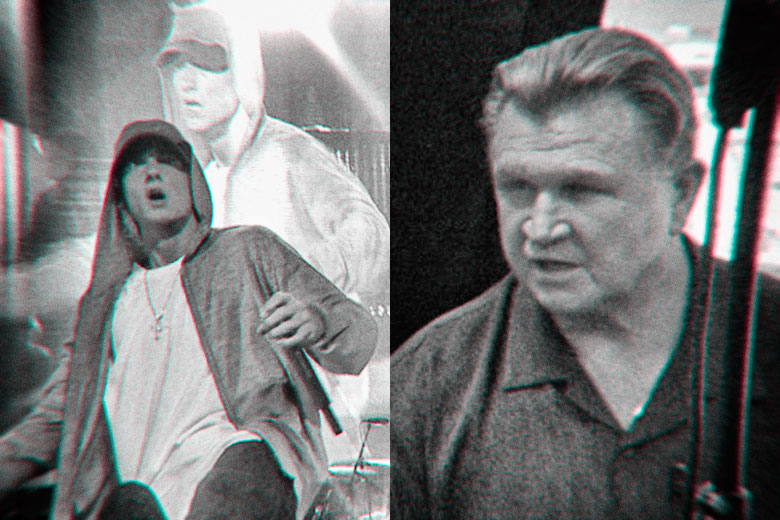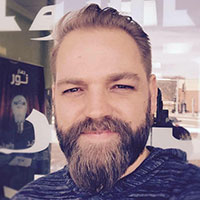
In the midst of the massively controversial NFL National Anthem kneeling debate, ex-NFL coach Mike Ditka ignorantly said, “But all of a sudden it’s become a big deal now, about oppression. There has been no oppression in the last 100 years that I know of.”
Just days later, Eminem freestyled on the BET Hip Hop Awards, praising Colin Kaepernick for the act of kneeling that Ditka had been critiquing.
So why is it that two white guys, who have spent tremendous amounts of time around black men, have such contrasting views on this issue? And what can this teach us, not only about racism in America, but also about Islamophobia?
There are, of course, many variables that could help explain why these men have such differing perspectives. They’re from different generations, they had different upbringings, and their encounters with black men are in two very different roles in two very different professions. But it’s the latter that I think is intriguing and worth exploring a little more deeply.
For example, much of Mike Ditka’s interactions with black men has been as an NFL coach, twenty years, in fact. In order to achieve success (win football games) in this position, it requires the obedience of the players. I learned this at an early age, having been raised by a high school football coach as well as playing for many other coaches along the way.
A football coach is a position that holds power, and, often, the players become more like a means to an end for them. That’s not to say that football coaches don’t care about their players—my dad sure did—but there is almost always an element that includes players being under the authority of the coach, and the role and value of the player is directly related to their ability to perform.
This relational dynamic often creates a filter where a coach might see and hear only what they need to in order to build a stronger football team, while missing the stuff that makes the player a person. For many black players, this includes a whole lot of oppression over the past 100 years. Mike Ditka spent twenty years interacting with black men in this type of role.
Now let’s jump over to Eminem. Eminem had little or no authority or power when he was trying to build a music career. It took time for him to be recognized as talented and for his music to be taken seriously. And along the way, he was interacting with black men, not from a position of power or authority, but from the position of a learner—learning from the remarkably talented black musicians who came before him.
It is with these two strikingly different experiences that I think we discover why just spending time around someone different from us doesn’t always produce understanding. It’s why someone can hold a wildly racist ideology (like Ditka) and yet try to justify themselves with the all too common, “but I have black friends.”
This problem isn’t limited to issues like the systemic racism in America. I see it happen all the time with American Christians, Muslim refugees, and Islamophobia.
Like a football coach, American Christians often hold a position of power over our refugee neighbors. That power comes from being from America, already knowing the language, and being able to navigate things that are often brand new and difficult for our new refugee neighbors. We hold the power to help them adjust to their new life more quickly.
Sadly, this position of power is substantially heightened when the American Christian has an evangelical or missionary background. Suddenly, that position of power is ramped up with a belief that the American Christian holds a truth that the refugee does not, as if they are inferior. It can be ramped up even further when the American Christian believes they can fulfill a command of God and get Jesus to return by converting enough people who are not Christian to their version of Christianity. The Muslim refugee becomes a means to that end— just like trying to win a football game.
From this position of power, the American Christian views their refugee neighbors through a filter where they see and hear only what they need to do to fulfill a (misunderstood) command, while missing the stuff that makes the refugee human. An extreme, but common, example of this is the American missionary who spends time in the Middle East, but once back in the US spreads Islamophobic rhetoric at churches and on Facebook, all while supporting the foolish Muslim Ban. It’s as if their eyes and ears and hearts were closed, except to anything they thought could help them win the game.
But, there is a flip side. People who build friendships with Muslim refugees here in the US and overseas model remarkable, transformational love through understanding. And, almost always, like Eminem, somewhere along the way they had the attitude of a learner that carried them toward a deeper, more meaningful, and more accurate perspective. It’s as if they set aside their ego, whether intentionally or unintentionally, and experienced the fullness of who and what makes each person a person. Their eyes and ears and hearts were wide open, unfiltered.
In the end, we can’t know for sure what led these two white men to have such contrasting views. But maybe we can consider this an example of how our experiences alone do not always produce a deeper, more meaningful, or more accurate understanding of others. To achieve that, we sometimes need to be a little bit more like Eminem.
Photos of Eminem and Mike Ditka via Wikimedia Commons, Public Domain.
 About Rich A. Rosendahl
About Rich A. Rosendahl
Rich A Rosendahl with his wife Sheri Faye Rosendahl manage a non-profit called The Nations and have developed a network of friendships among the thousands of neighbors in their city who have arrived as refugees from the Middle East and North Africa. Their passion for Loving our neighbors has also taken them oversees to Love, Serve and Learn from Refugees in places like: UNHCR Choucha Refugee Camp near the Libyan Border, Aida Refugee Camp in Palestine, the Syrian border, and Southern Iraq. Follow Rich on Facebook.